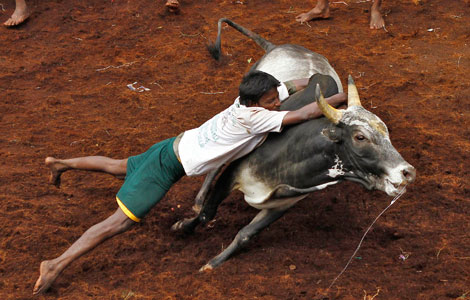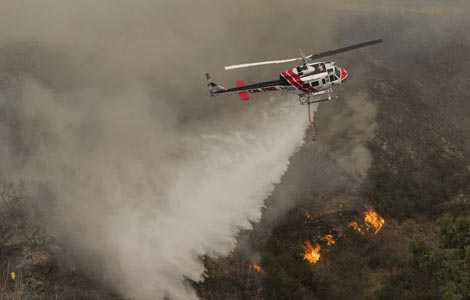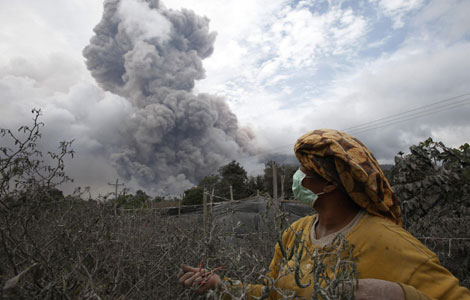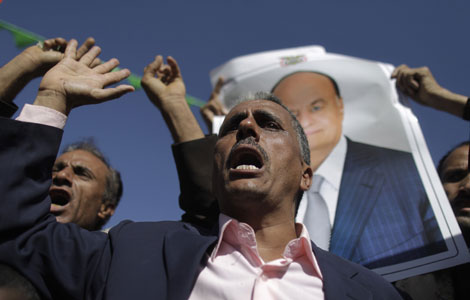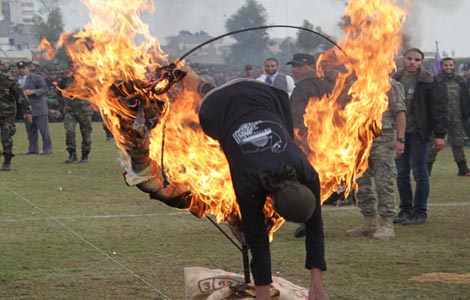

 |
|
An anti- government protester holds a Thai national flag during a protest at the Victory Monument in central Bangkok January 16, 2014. [Photo/Agencies] |
Speakers at protest sites across central Bangkok have suggested that Yingluck is worn out and eager to quit, but at a news conference on Friday the prime minister maintained that she still enjoys overwhelming popular support.
Thaksin's rural and working-class support has ensured he or his allies have won every election since 2001 and his Puea Thai seems certain to win an election Yingluck has called for February 2.
The anti-government protesters have rejected the election.
They want to suspend what they say is a fragile democracy destabilised by Thaksin, whom they accuse of nepotism and corruption. Their goal is to eradicate the political influence of his family by altering electoral arrangements, though in ways they have not spelt out, along with other political reforms.
Many ministries and state agencies closed this week to avoid violence, with staff working from home or back-up facilities.
The protesters have set out to paralyse ministries, marching each day from camps they have set up at the seven intersections. On Thursday they targeted revenue offices.
Foreign Minister Surapong said this week that the closure of the consular department in the main government complex meant that, in the first four days of this week, 16,000 new passports had been delayed.
The security forces have largely kept out of sight since the blockades began this week, with the government keen to avoid any confrontation.
The unrest is hurting the economy. Finance Minister Kittirat Na Ranong said this week it might only grow 3 percent this year rather than the forecast 4.5 percent because of disruption to manufacturing, exports, consumption and tourism.
